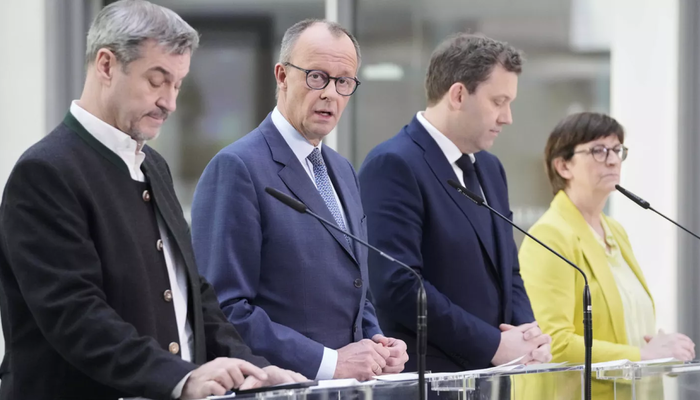As Germany’s new government takes power, it faces a pivotal moment in reshaping its foreign policy. With rising geopolitical tensions and shifting alliances, Germany must navigate challenges ranging from defense funding to maintaining influence in the Middle East.
The country’s future role in global security, economic interests, and strategic alliances is at stake as it redefines its position on the world stage.
Germany’s new government is stepping into a foreign policy landscape that promises to be dramatically different from the past, with the country now facing significant geopolitical challenges.
After decades of being an economically powerful yet cautious nation, many experts believe Germany is entering a new era where it will have to redefine its global role, especially in light of shifting international dynamics. This transformation marks the end of Germany’s comfortable position as a major economic force with minimal military involvement.
Why Morocco cuts ties with German?
Post-World War II, West Germany aligned closely with the West, becoming a key player in multilateral diplomacy and a strong advocate of democracy and the rule of law.
Foreign policy decisions were often made in partnership with Western allies, with the US guaranteeing Germany’s security. However, recent statements at the Munich Security Conference by US Vice President JD Vance indicate a shift, suggesting Europe must bear its own defense costs and take responsibility for its defense.

This has left many in Germany, including Friedrich Merz of the Christian Democratic Union (CDU), concerned. Merz warned that Germany is at a crossroads, with US security guarantees being questioned and the erosion of democratic institutions on the horizon.
Roderich Kiesewetter, a foreign affairs expert from the CDU, emphasized that Germany must confront the growing threats to its democracy, especially from China, which is seeking to expand its influence over democratic nations like Germany.
According to Kiesewetter, the country must focus on protecting its national and economic interests, warning that neglecting these priorities could have disastrous consequences, including weakening NATO’s effectiveness as a deterrent.
One of the most pressing issues Germany faces is its response to the ongoing war in Ukraine. Since the Russian invasion in 2022, Germany has been a major supporter of Ukraine, providing military aid and welcoming refugees.
Germany to implement stricter citizenship rules
However, as peace talks appear to be on the horizon, many experts believe that any eventual agreement will likely be negotiated between the US and Russia, leaving Germany to play a crucial role in safeguarding the peace. A recent poll indicates that nearly half of Germans are in favor of deploying soldiers to enforce such an agreement, while 44% oppose the idea.
For Germany, the key challenge will be ensuring its own defense, ideally in collaboration with other EU nations. The costs of military readiness are expected to be significant, with estimates of up to €500 billion.
CDU chancellor candidate Friedrich Merz has called for Germany to take the lead in European defense, recognizing the country’s strategic central position and the need to fulfill its leadership role.
Merz pointed out that German rearmament is vital not only for Ukraine but for safeguarding peace in Europe against potential Russian aggression.
To support this shift, Germany will likely see a significant increase in defense spending, which could rise from around €50 billion annually to as much as €80 billion or more.
The decision on how to fund this increase—whether through debt or cuts in other areas—has sparked heated debate ahead of the election. For Kiesewetter, investing in military capabilities is crucial for Germany to be taken seriously by the US, ensuring that the transatlantic alliance remains strong.
In contrast, Germany’s influence in the Middle East is expected to remain limited, with the government sticking to its longstanding position of supporting Israel’s right to exist and advocating for a two-state solution with Palestine, even as the prospects of such a solution grow dimmer.
European Centre for Disease Prevention
Foreign Minister Annalena Baerbock has repeatedly stressed the importance of European unity in navigating these global challenges.
She emphasized that Germany, as part of a collective European effort, must capitalize on its economic strength and partnerships, such as those with the Gulf nations and Mercosur countries, to remain relevant in a rapidly changing world.
As Germany enters this new chapter in foreign policy, its decisions will have far-reaching implications for its role on the global stage, both within Europe and beyond.
The coming years will determine whether Germany can successfully adapt to these shifting dynamics and assert itself as a key player in international security and diplomacy.



